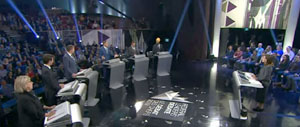Tuesday October 8, 2019 ~ VICTORIA
by Mary P Brooke, Editor ~ West Shore Voice News
Tuning into the federal leaders debate on Monday evening October 7 was for some voters their first focused bit of attention to the campaigns of this 43rd federal election.
Widely broadcast on national TV as well as live-streamed online from the Canadian Museum of History in Gatineau, Quebec, the two-hour debate in English (4 to 6 pm Pacific Time) featured an equal airtime opportunity for the leaders of six federal parties to try and look their best, do their best, and pull off any sort of advances for their party with now just 13 days ahead of the October 21 general election date.
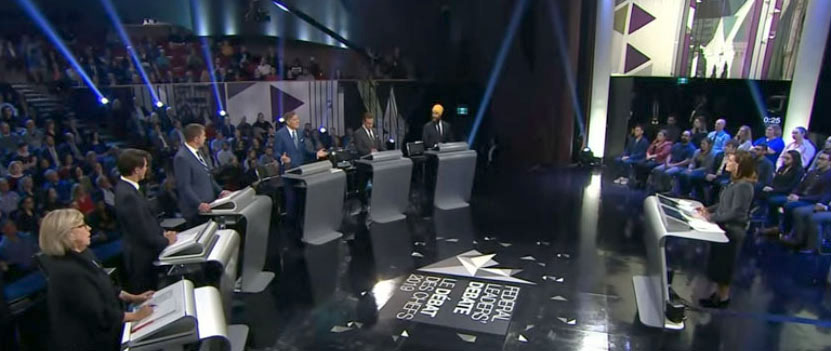
On the stage (from left) were Elizabeth May, Green; Justin Trudeau for the Liberals; Andrew Scheer for the Conservatives; Maxime Bernier, People’s Party of Canada; Yves-Francois Blanchet for the Bloc Quebecois; and Jagmeet Singh, NDP.
Showing just a touch of nervousness upon walking onto the podium platform, Trudeau slid quickly into the statesman-like grace that comes naturally to him now given his four years as prime minister including worldwide travels and leadership decisions of great magnitude.
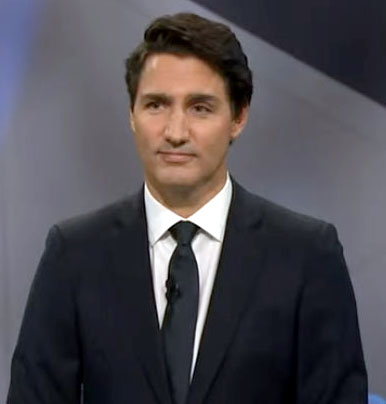
While the first question from the public was about dealing with climate change, Scheer used his first on-camera moment to do a bulldog attack on Trudeau. Moments later, May picked up the climate beat and things moved on.
For voters there was a lot to take in. The way questions were answered, the amount of bickering debate style response, and choice of topics when each leader had their individual moment to choose was one thing. There was also the overall impression of leadership to assess, and whether key points that concern most Canadians (e.g. affordability, climate change) were adequately addressed.
Supporters of the Liberal leader will hope that Trudeau’s use of ‘when’ not ‘if’ — regarding Scheer and the Conservatives forming the next government — (something he did twice) was a slip of the tongue due to pressure and over-rehearsal, and not an indication of how the campaign-beleaguered leader might secretly feel about doing another four years as prime minister.
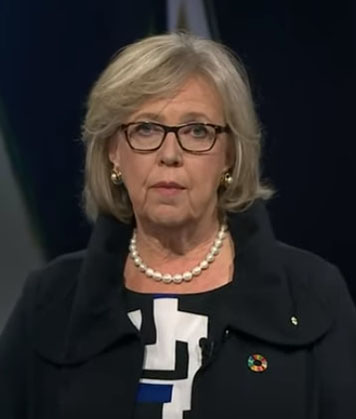
Along those lines, May went on the attack right next to Trudeau telling him directly: “Please God, you won’t get a majority this time.” That was pretty much the only out-of-character moment for the Green Party leader that evening, and it was a shocking one, even for long-time political players. Trudeau visibly pulled back on that one.
While the immediate response by political pundits and newscasters that evening was that NDP Leader Jagmeet Singh ‘won’ the debate by getting his points across and not bowing to the fray of making attacks, he more often than not slid into a repeated mantra of NDP talking points. By comparison, Trudeau and Scheer mostly stayed away from party rhetoric and responded in the moment with selective points from a deep base of experience with both debating and having spent time in the House of Commons in that mode.
Bloc Quebecois leader Yves-Francois Blanchet himself said it’s unlikely he would be elected as prime minister on October 21, but despite his avowed allegiance first to Quebec and Canada second, anyone watching was probably impressed with his fluidity and clarity of thought despite his imperfect mastery of the English language. There was more political mastery in Blanchet’s addressing of the issues than by Bernier or even Singh. Many Quebecers are likely quite proud of representation for their province by this leader, but it’s a federal election so a lot of wind was ultimately lost from Blanchet’s sails.
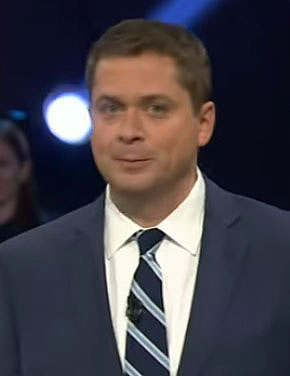
Scheer did bring up some important overall distinguishing features of the Liberal government’s last four years, accusing Trudeau of treating entrepreneurs as ‘cheaters’. That single statement will likely galvanize the Conservative voting base.
May took issue with the broadcaster consortium’s introduction of ‘who will be invited back to Ottawa’ on October 21, saying that Members of Parliament work for the people, that being an MP is an act of service to constituents and community.
Being equally picky on the words, with regard to reaching greenhouse gas emission reduction goals, Trudeau directed to May and probably also the NDP that “targets are not a plan”. The Liberals pride themselves in taking a wide range of actions in numerous areas toward addressing complex issues, not just for climate change but most other aspects of governance including the economy (on that point hearing Trudeau repeat a few times about supporting the middle class and lifting children and families out of poverty).
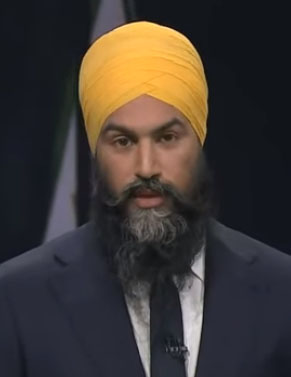
When it comes to debating style, Trudeau simply floats above the fray and dances with the moment (not unlike one would handle the sports-world boxing ring as he does). Scheer is a fighter, but didn’t have scope beyond wanting people to ‘get ahead’ financially (which really doesn’t help all of the middle class or ‘those working hard to join it’ as Trudeau is wont to say).
May is an experienced campaigner and a studious, productive legislator. Her Green supporters probably felt assured last night by her competent performance which indicates her depth of commitment and years in activism. May herself noted being the only woman leader on the stage; that in itself has been a long time coming (she was not invited to take part in the federal televised debates in the 2015 election cycle).
May took an effective swipe at Scheer, saying the Conservatives have “short term, misguided, greedy and selfish policies”. He had no response.
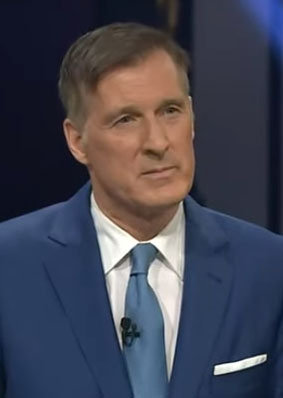
By luck of random draw in the debate process, Bernier got a lot of airtime advantage. It was a good opportunity to put forward some elements of the People’s Party of Canada platform (effectively new to the political scene in 2019). But as Singh pointed out, Bernier did not ‘belong’ on the stage, saying that the PPC leader did not in fact demonstrate leadership as evidenced by some scathing mean-spirited Tweets that the moderator read aloud that evening.
One of the key platform points of the PPC is immigration, pointing out the dangers of welcoming too many newcomers at one time (referencing to European countries that now have problems with integration). While May didn’t get deeper into it, the Green Party sees ‘climate change refugees’ as something that is unavoidable. The Liberals made a high profile of immigration in 2015 and 2016, especially to do with accepting many Syrian refugee families into the country to help alleviate that crisis in the name of service to others and humanity.
Immigration is clearly needed by Canada for maintaining and building a robust workforce to help balance the declining population growth of resident Canadians. Since the 1970’s there has been relative success with integrating new Canadians (especially in the larger cities), especially where there is the support of attentive programs in community to deal with the various phases of transitions for newcomers.
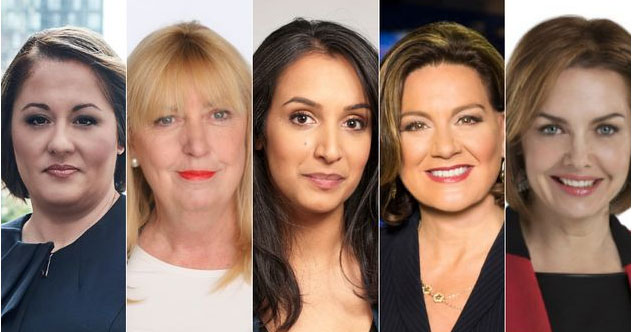
Like most debate formats there are pros and cons to how the time and questions are divided up. There were five segments to the entire episode, each led by a different moderator from prominent news organizations. It could not have been easy to shepherd six federal leaders on live national television in front of a live audience, especially with so much at stake for all concerned — leaders, media format, and voters. But the experience of doing journalism live on TV did shine through in the handling of things by news anchors Lisa LaFlamme (CTV) and Rosemary Barton (CBC), compared to the competent but less polished execution of things by Toronto Star columnist Susan Delacourt and on-air political commentator Althia Raj (of Huffington Post Canada). While news anchor Dawna Friesen (Global TV) has ample experience, her level of ease was not the same as LaFlamme and Barton when it came to sorting out some of the more scrappy aspects of debate.
Some of the more detailed aspects of Canadian policy such as equalization payments from the federal government to the provinces was important but possibly lost on the broadest range of viewers.
On the matter of Quebec’s Bill 21, Trudeau challenged Singh with a valid point on political strategy: “So why not act on your convictions and leave the door open for challenging it.”
Trudeau and Scheer both commended Singh for handling racist scenarios and remarks not only during the campaign but in his career and life generally. Singh thanked the others for their comments but at one point also injected a bit of humour by saying he wore an orange turban on purpose (the NDP party theme colour) so he would stand out as the NDP leader.
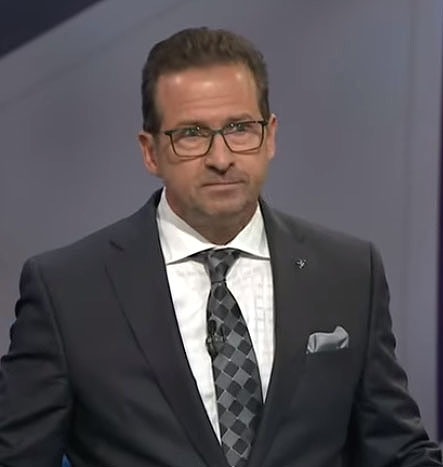
‘Putting a price on carbon’ is another issue that not every Canadian is clear about. Last night’s debate didn’t clear up much or lend much confidence for any argument on that topic. The Conservatives would scrap the Liberal method (also used by several provinces including BC) that collects a carbon tax then redistributes most of it back to low- and middle-income consumers.
The effectiveness of the carbon tax rebate to consumers has yet to be clearly shown as a having any direct impact on people to make different or better choices about their impact on the environment. However, nowadays it has become clear that individuals can only do so much, and that it’s time for federal, provincial and community policies to take action on greenhouse gas emissions and other aspects of climate change action (especially taking enforcement action on those policies).
On climate change action, Trudeau said “we have to move faster and do more”, taking action with what is “reasonable and doable”. He reiterated the Liberal government’s action this year to put a ban on single-use plastics and over the last four years putting “a price on pollution”. He said that “Canadians know how important this is” (to address climate change, including the balancing of the Trans Mountain Pipeline expansion vis-a-vis jobs and economy in Alberta).
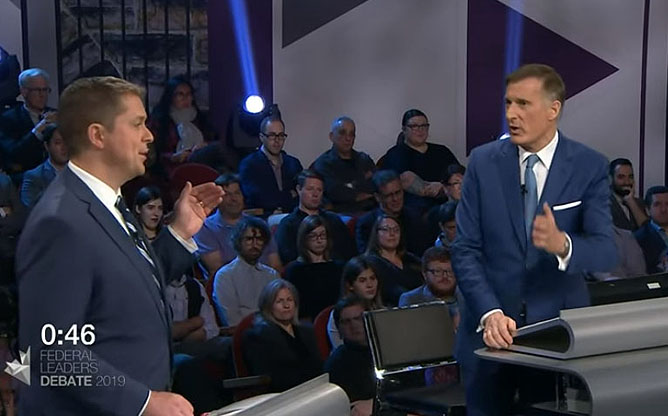
Scheer said a Conservative government would “invest in clean energy”. He challenged Trudeau with a zinger, that the Liberals have failed at three pipelines (two that were cancelled, and one that was bought-out from the private sector).
The Green leader wrapped up by saying this election is about “trust and ethics”. “We need grownups in the room to take responsibility,” said May.
Singh elicited a bit of genuine vision in saying that Canada needs to “fight the climate crisis like we mean to win it”. If anyone hadn’t yet gotten past realizing the importance of addressing climate issues, that comment from the NDP leader was a helpful push to the next level.
Overall, whether these debates help any undecided voters has yet to ever be confirmed. For the leaders and their party faithful it’s more about holding ground and taking any opportunities to score on a few important points. The debates are more treacherous (in terms of possible missteps) than many party-faithful are likely willing to admit. But even one bad moment that diminishes enthusiasm for one leader for a day or two is usually not a deal-breaker for any voter.
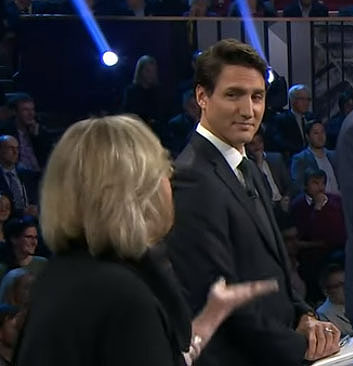
These debates take up valuable campaign time for rehearsal and lack of presence on the face-to-face campaign trail. This was the first 2019 national debate that Trudeau participated in (by his choice), and that May participated in (having not been invited to the French TVA debate last week).
Bernier in this debate may have shown just how rough around the edges his party’s approach is to national issues, but he got a lot of airtime to help people decide; his party has candidates in all 338 ridings across the country.
LGBT2Q and a woman’s right to choose were briefly mentioned by some candidates in Monday evening’s event but not debated. Likewise there wasn’t much discussion about jobs and employment, other than in the context of the oil industry’s struggles in Alberta. The SNC-Lavalin controversy which was so dramatic for many months earlier this year was barely mentioned, or at least no new perspectives were raised on that. The cost of education (tuition and student loans) was barely part of the evening.
The overall manner of a scrappy debate is something that casual watchers of the political process generally find unappealing. Last night’s debate won no points for elevating the political process to one of respectful decision-making. It was more a cockfight to see who could strut their stuff the best, and one cannot be sure in 2019 how important that is to the common sense voter.
=========== Links:
>> The October 7 federal leaders debate replay is available online (CBC) | Toronto Star link
>> Candidates in the west shore:
- Cowichan-Malahat-Langford candidates and contact info
- Esquimalt-Saanich-Sooke candidates and contact info
>> Advance Voting Dates/Times


